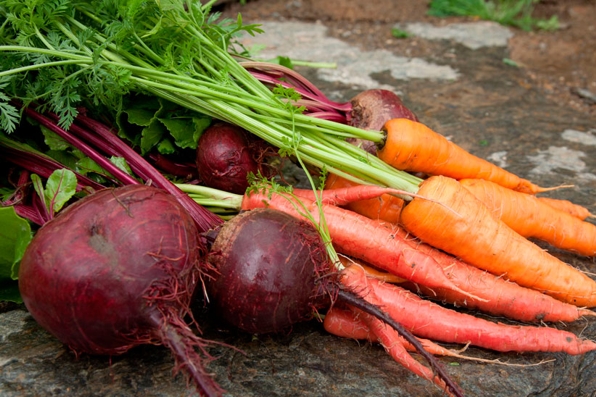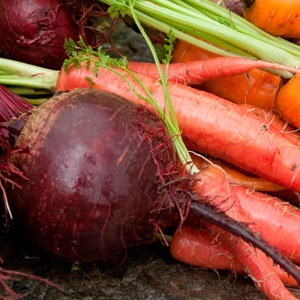If you’ve ever wondered why restaurants use such overly-descriptive, exaggerated language in their menus, wonder no more. A new study by a group of American researchers revealed that you can get more people to eat a less-desirable food simply by calling it something more desirable…
 Beets and Carrots… The long and short it, when it come to veggies kids
Beets and Carrots… The long and short it, when it come to veggies kids
hate most. Unless you describe them ‘indulgently’…
Scientists at Stanford University decided to try a simple experiment, using the student population as subjects. The study was conducted in a large university cafeteria at which 27,933 students dined over the term of the experiment.
The test vegetables – which are very healthy but often go uneaten because of their earthy flavours – were carrots and the humble Beet. I guess the researchers thought that, if they could make Beets more attractive simply by describing them more attractively, they could make any veggie more appealing!
The experiment ran each weekday through the 2016 autumn academic quarter. Each day, one vegetable was labeled in 1 of 4 ways: basic (e.g., beets, green beans or carrots); healthy restrictive (e.g., “lighter-choice beets with no added sugar,” “light ‘n’ low-carb green beans and shallots” or “carrots with sugar-free citrus dressing”); healthy positive (e.g., “high-antioxidant beets,” “healthy energy-boosting green beans and shallots” or “smart-choice vitamin C citrus carrots”); or indulgent (e.g., “dynamite chili and tangy lime-seasoned beets,” “sweet sizzilin’ green beans and crispy shallots” or “twisted citrus-glazed carrots”).
Here’s the kicker…
Although the labeling changed, there were no changes in how the vegetables were prepared or served!
What the researchers called ‘indulgent’ labeling of vegetables resulted in 25 percent more people selecting the vegetable compared with basic labeling, 41 percent more people than the healthy restrictive labeling and 35 percent more people than the healthy positive labeling, according to the results.
More research is needed, the scientists say, before the results can be generalized to other foods. But if it works for veggies, and children can be convinced to buy into the deception, ‘indulgent labeling’ may be the gift of the millennium to parents!~
What I want to know is…
If restaurant owners have known this for so long, why did it take scientists so long to catch on?
~ Maggie J.

